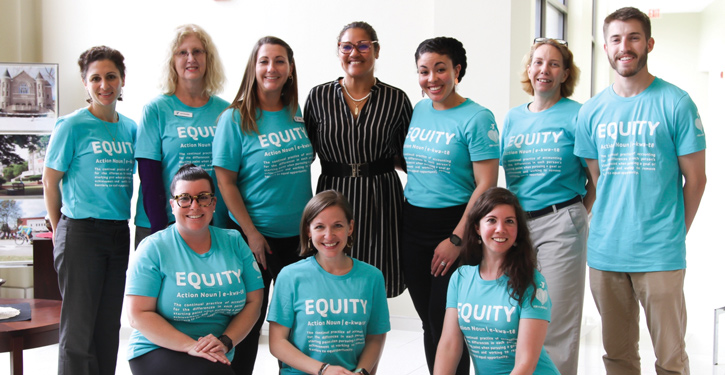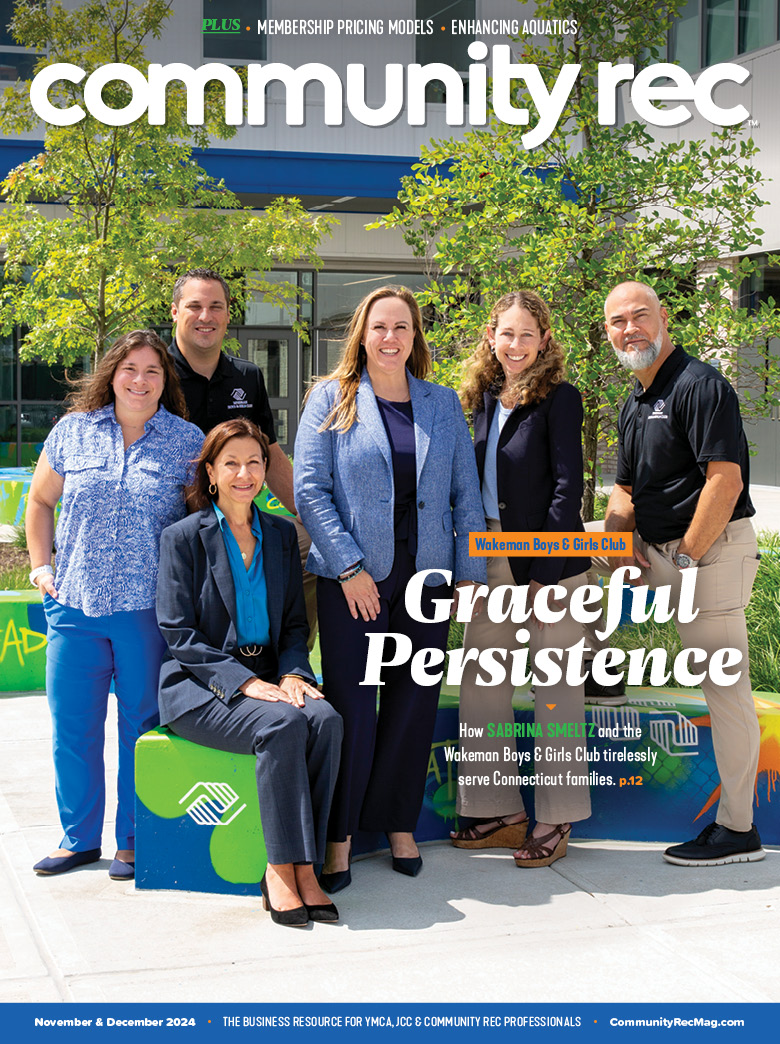Industry leaders share how they’re ensuring everyone in their communities feel seen through meaningful representation.
According to the 2020 U.S. Census, the country is more racially and ethnically diverse than it has ever been. In fact, 96.1% of counties experienced an increase in its population’s diversity between 2010 and 2020.
With this trend showing no signs of slowing down, it’s incredibly important for industry leaders to guarantee all groups within their community feel valued by their local rec center.
That’s why the YMCA of Greater Boston is partnering with the city and United Way to provide resources for recent newcomers to the U.S. Lauren Reyes, the COO of the YMCA of Greater Boston, said the city has an influx of newcomers to the area, thus creating a large housing problem. So, when city officials asked for assistance, the YMCA was ready to step up.
“The city transitioned many office spaces and city buildings into shelters for families, but during the daytime the regular function of the building is happening. So, they’ve partnered with us to provide opportunities within our locations,” said Reyes. “Those opportunities include housing or job assistance, getting kids enrolled in school, and access to pre-school or after-school programs. Some families even expressed the need for technology courses, so we’ve worked to provide computers and training for those families.”
This outreach helps solve an assumption that could be a pitfall for many rec centers. Reyes said many YMCAs could be missing entire groups of people who make up large portions of the community because it’s easy to believe everyone is already inside your walls.
To prevent this issue, the YMCA of Greater Boston hired a third-party to evaluate its physical spaces. This inspection led to accessibility improvements for individuals of all mobility levels by changing the slope of entryways, increasing the amount of space between equipment on the fitness floor and having proper signage at the right height throughout the center.
However, while specific action strategies like these need to be implemented, it’s even more important to have diverse voices among staff and leadership.
Megan O’Neill, the executive vice president and COO of the YMCA of Greater Richmond, said her organization’s strategic plan indicates each branch board needs to mirror their community demographics by about 70%. This guarantees the right voices are around the table in decision making, and executive directors are held to this standard in their performance reviews.
“We ensure job postings speak of this work toward diversity, equity and inclusion (DEI), and our commitment to it,” said O’Neill. “Additionally, in the interview process we have questions related to DEI. We also reviewed bylaws, joining practices and HR policies to remove barriers from participation, and dedicate a day for all full-time staff to come together to learn and grow in these areas. These strategies took time, but there are no short cuts to this work.”
This concentrated effort began for the YMCA of Greater Richmond in the summer of 2020 when the Y’s African American Employee Resource Group (AAERG) asked if they could take the lead in reviewing procedures, policies and operating systems.
O’Neill said the AAERG spent several months in small task forces and came back with 88 thoughtful recommendations for the Y to improve upon.
“It was clear we wanted to act, but we needed to decide what was ours to do,” said O’Neill. “We were not experts in this work and didn’t want to portray ourselves as something we weren’t. We decided that sweet spot would be to be known as a convener of voices.”
To ensure these efforts were put into practice, the Y has two DEI committees made up of board volunteers and staff. Additionally, each branch has a mission, equity and inclusion committee. O’Neill said these groups are active and meet on a regular schedule so this work continues to move forward.
Like the YMCA of Greater Richmond, the Memphis JCC is also looking for ways to improve DEI. Larry Skolnick, the president and CEO of the Memphis JCC, said the J’s Center for Jewish Life and Learning has held open forums and learning sessions where all members from the Memphis community can come together and learn from one another on a variety of topics.
“I think there are always opportunities to foster open dialogue between people,” said Skolnick. “Whether they be members, staff or guests, we want everyone to feel safe and comfortable at the JCC. That means making sure people feel heard and know they can talk about an issue they are having with anyone on the management staff, from the CEO to program directors.”
Eliminating barriers to accessing Memphis JCC services is also proving to be beneficial for the J. Skolnick said families and individuals can apply for an adjusted membership fee if they find the cost prohibitive. The center also has a similar program with its summer day camp, and senior activities and meals are offered at a lower cost for those who might be on a fixed income.
“This includes weekday meals, monthly social luncheons, speakers, field trips and other social activities to help keep them active and engaged,” said Skolnick. “In the past few years, our social services arm launched an inclusion and diverse abilities program which offers a variety of services to those living with developmental and acquired disabilities.”
To increase word of mouth about these inclusive opportunities, the J’s advertising and communication practices are geared toward reaching the entire community.
This is accomplished by using various local and digital media avenues, zip code radius mailings to surrounding areas, and a referral program which allows any member in good standing to receive a free month of membership if they refer an individual who maintains their new membership for a specific time.
The YMCA of Greater Boston is also focusing on improved communication strategies by studying how to best connect with older members of the community who consume media differently. Additionally, Reyes said the Y is looking to make its information accessible in several new languages like Haitian and Croatian.
“For us, it’s a lot about engaging folks and really giving autonomy and ownership to individuals who identify as part of certain groups,” said Reyes. “It’s about connecting with people within those communities and asking them what they are seeing and how the Y is supporting them.”
Overall, the goal of making everyone feel seen is aspirational, but it can sometimes feel like an impossible task that’s never fulfilled. However, this pursuit will help your rec center create more meaningful change in the community.
It’s a quest Reyes knows is worth the hours of work and consistent learning on how to best include all walks of life.
“Education is key. If I could, I’d go back and educate myself sooner with more diverse resources,” said Reyes. “There comes a certain point where we must educate ourselves and seek information proactively. I would reinforce that necessity, to be in areas of learning and to share openly with others. Rec centers have a wide reach, so we want to continue to ensure we’re doing whatever we can to break down all barriers.”










